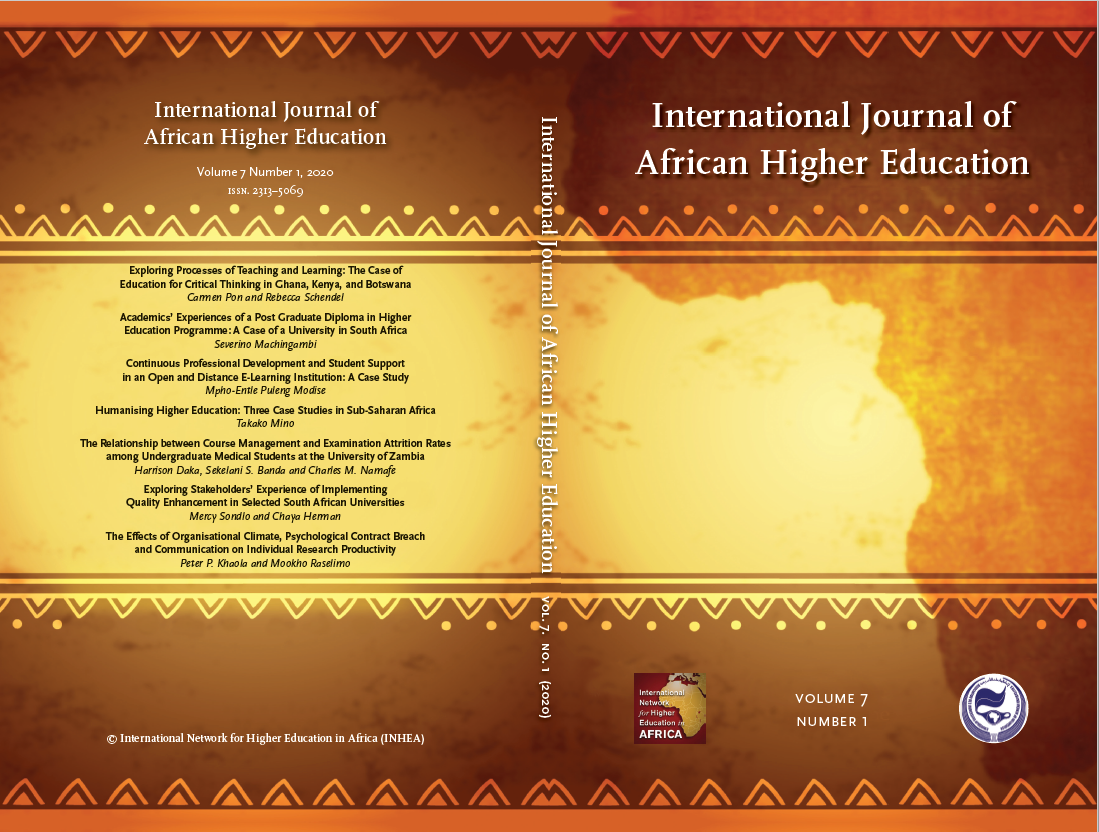Humanizing Higher Education: Three Case Studies in Sub-Saharan Africa
Abstract
Colonisation resulted in sub-Saharan Africa’s indigenous traditions of humanising education being largely displaced by Western forms of schooling. Yet, a humanising education, which focuses on cultivating one’s humanity, is critical to the work of universities seeking to address the current challenges facing the continent. This article is based on a study on the application of the African philosophy of Ubuntu and UNESCO’s global citizenship learning outcomes at three universities, in Kenya, Rwanda, and Ghana. The data were gathered by means of classroom observations and semi-structured interviews with students, faculty, staff, and administrators. The findings show that the institutions’ purposeful use of experiential learning and group work was effective in fostering students’ critical thinking and empathy and that faculty modelled humanity through democratic interactions with students. However, the institutions showed less evidence of enabling students to develop a sense of belonging to humanity and appreciation for the interconnectedness of all life. In order to help students to develop the essential philosophical foundations of understanding what it means to become fully human, it is recommended that Ubuntu and African indigenous thought be incorporated into higher education in sub-Saharan Africa.Published
2020-08-19
How to Cite
Mino, T. (2020). Humanizing Higher Education: Three Case Studies in Sub-Saharan Africa. International Journal of African Higher Education, 7(1). Retrieved from https://ejournals.bc.edu/index.php/ijahe/article/view/11249
Issue
Section
Articles
License
Copyright (c) 2020 Takako Mino

This work is licensed under a Creative Commons Attribution-NonCommercial-NoDerivatives 4.0 International License.

